(TibetanReview.net, Aug21’22)
Tibetan Review is giving you a time to tune out the news, for a second, so that you can settle in with a good book.
We asked our Tibetan exile icons, thinkers and changemakers from novelist, journalist, filmmaker, academician, and politician to share the books that they are reading this summer.
We requested them to share books that they would like to relax with at the cafe or by the beach to read.
A gripping portrait of modern Tibet, a surgeon’s notes on an imperfect science, a Tibetan family’s journey through exile and so much more. The list will have you reading all the way to this autumn.
Tenzin Dorjee
Senior Researcher and Strategist at Tibet Action Institute and PhD Candidate in Political Science at Columbia University
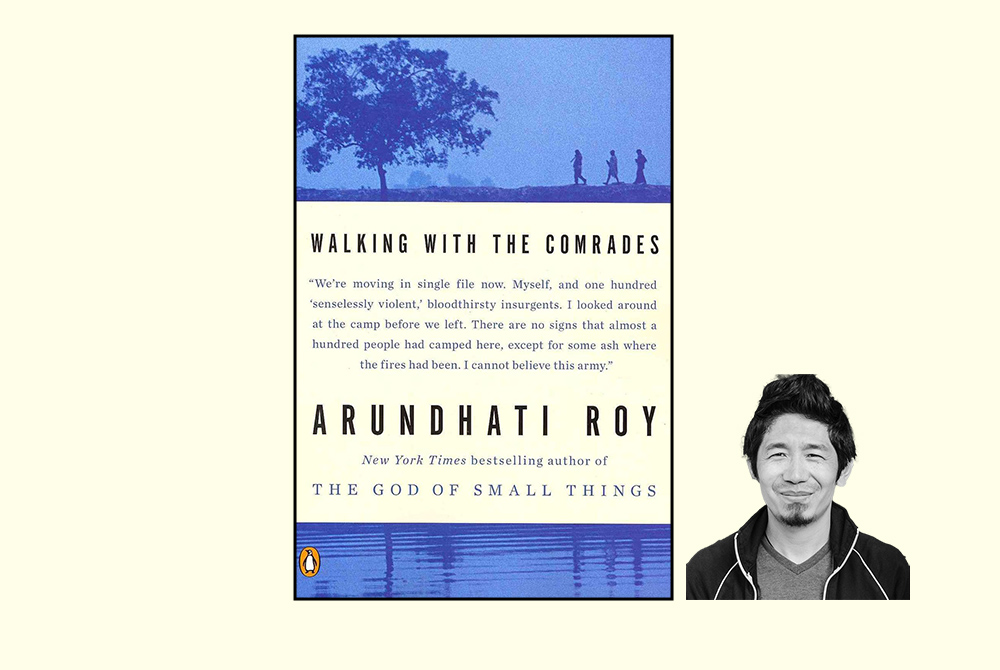
I was just reading Arundhati Roy’s Walking with Comrades.
I’ve been staying as a house guest of the Tibetan writer Bhuchung D. Sonam in Dharamsala and each morning I pull random books out of his library to see if any of them is slim enough to read in the bathroom. That’s how Arundhati’s Walking with the Comrades fell into my hands, and it quickly swept me up in the David-versus-Goliath story of a people who are fighting to preserve an alternative vision of the future. The staggering odds they face in this fight reminded me of our own struggle against Chinese colonialism –– of course these are two very different struggles in terms of scale, history, context, and method… but there are some interesting commonalities that have instructive value. I’d highly recommend it to anyone who likes short books, which is very much in keeping with Tibetan taste.
***
Jamyang Norbu
Writer and Political Activist and author of The Mandala of Sherlock Holmes

I have a bunch of books I have to get through. I am re-reading E.F. Schumacher’s Small is Beautiful (1971) which contains his famous essay Buddhist Economics where he outlines the limitations of the global economic system and suggests a Buddhist alternative which could provide for a more sustainable future for mankind.
I am also reading Ram Guha’s definitive two-volume biography of Gandhi. I read them when they were first published some years ago, but they definitely require re-reading.
***
Bhuchung K Tsering
Interim President, International Campaign for Tibet
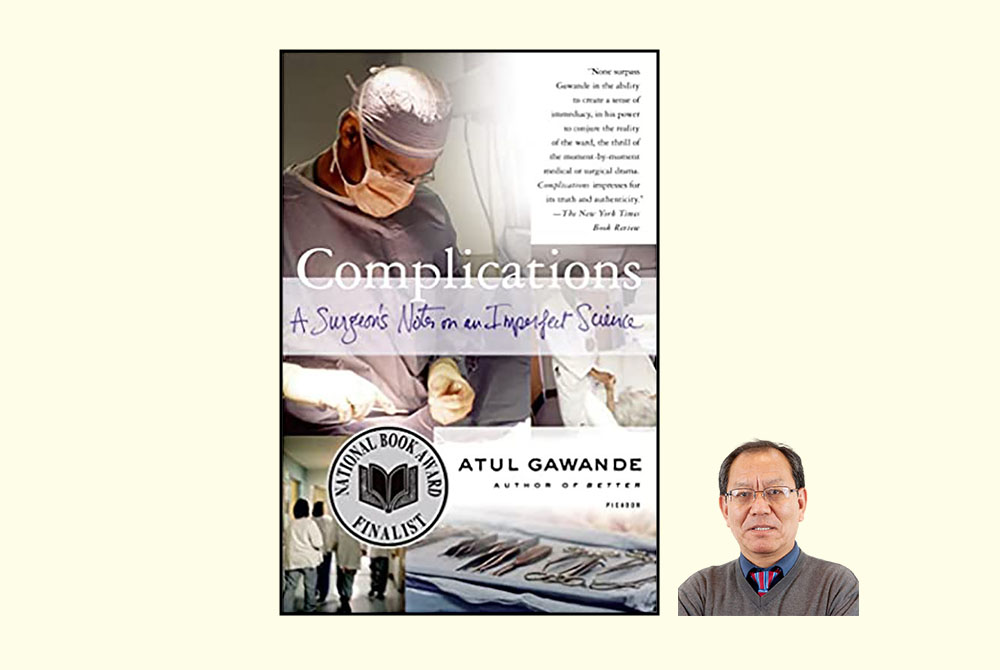
I am reading Complications by Atul Gawande. He is an Indian American surgeon and the book is about his experience as a surgeon. Through some of the cases he handled, he expands on the scope as well as the limits of modern medicine. I am yet to finish it and so cannot say more.
This is part of my quest to read Asian American literature as a way to see how the authors handle their sense of belonging and how they interpret developments. The Asian American community is a vibrant community and when you are able to identify yourself with some of the characteristics that are in the books by the community, there is a special kind of enjoyment from reading them. I am glad that Tibetan Americans are slowly beginning to make a presence in the mosaic that is Asian American.
***
Tenzing Sonam
Film director, writer, and essayist
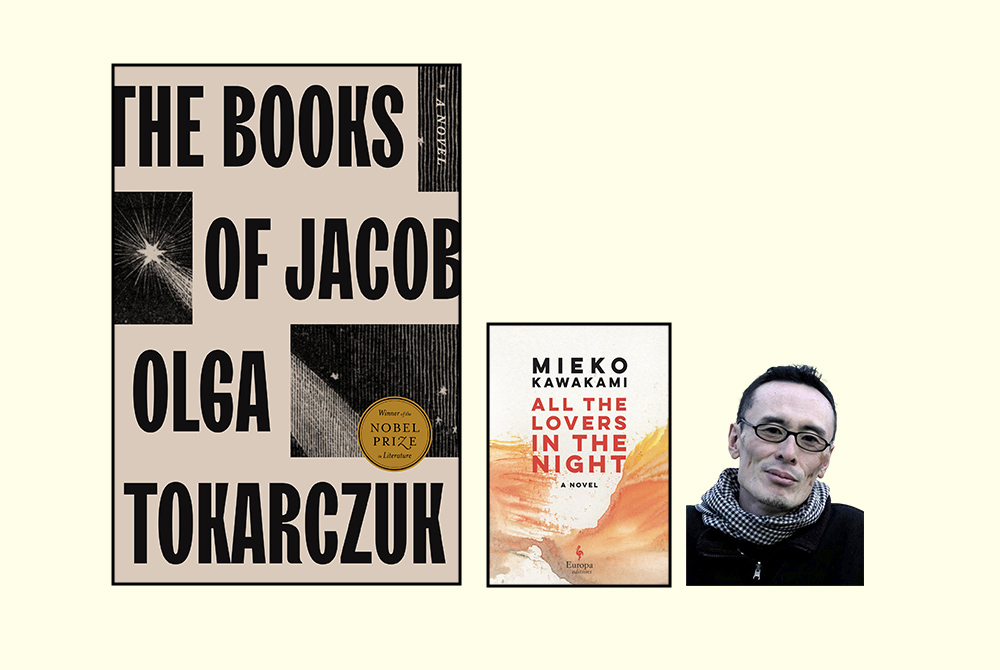
I’ve just finished Olga Tokarczuk’s massive tome, The Books of Jacob, a fascinating story of a self-proclaimed Jewish messiah in 18th century Poland and the Ottoman Empire. The book is based on a historical character but takes full creative license to spin an intricate web of characters, events, and places that borders somewhere between fact and fantasy. It’s an amazing achievement and she rightly won the Nobel Prize for Literature for her efforts.
I’ve just received a copy of Mieko Kawakami’s All the Lovers in the Night and am eagerly waiting to start reading it. I’ve become a big fan of her writing after reading her first two books, Breasts and Eggs and Heaven. Mieko Kawakami is perhaps the best known of a younger generation of Japanese women writers challenging the patriarchal orthodoxies of Japanese culture. A must read for anyone interested in Japan.
***
Youdon Aukatsang
Member of Tibetan Parliament-in-Exile and Director of Empowering the Vision
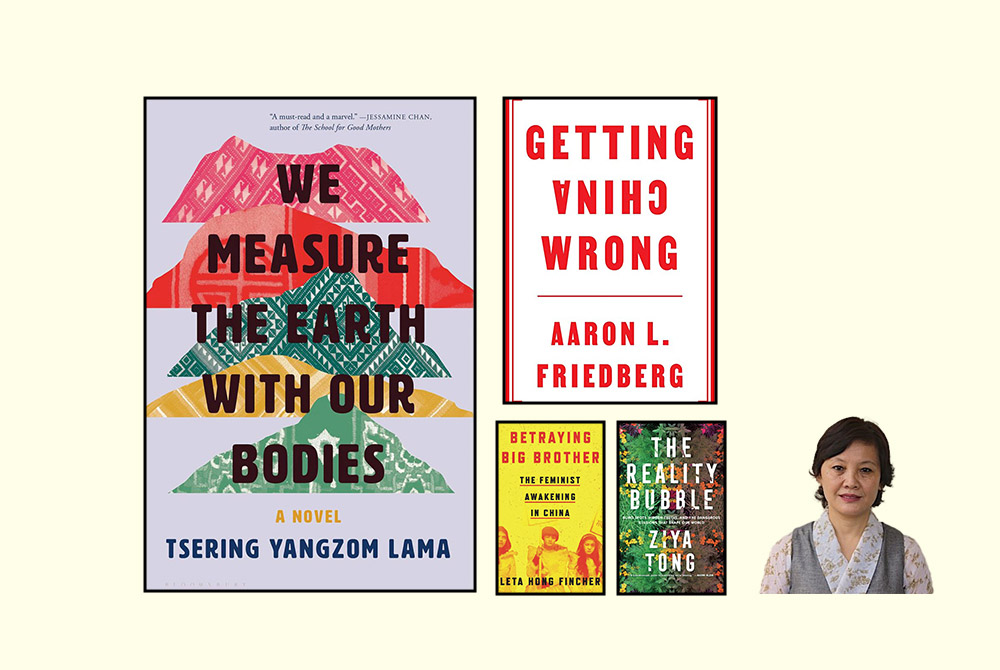
I am currently about to finish We measure the Earth with our Bodies by Tsering Yangzom Lama. I sometimes read two books at the same time, particularly if one is fiction and the other non-fiction. I have also started reading Getting China Wrong by Aaron L Friedberg.
Other books I intend to read are, Betraying Big Brother: The Feminist Awakening in China by Leta Hong Fincher and The Reality Bubble: Blind Spot, Hidden Truths and the Dangerous Illusions that Shape our World by Ziya Tong
There is an immediate connect with Tsering Yangzom Lama’s book as there are many shared experiences and also a sense of pride to read a Tibetan author.
I am also trying to read as much as I can on China to understand the situation and developments in China and also perspectives on China.
The Reality Bubble would be an interesting read and also take me outside of my immediate concerns to broader global concerns
***
Tenzin Dickie
Writer and Literary translator
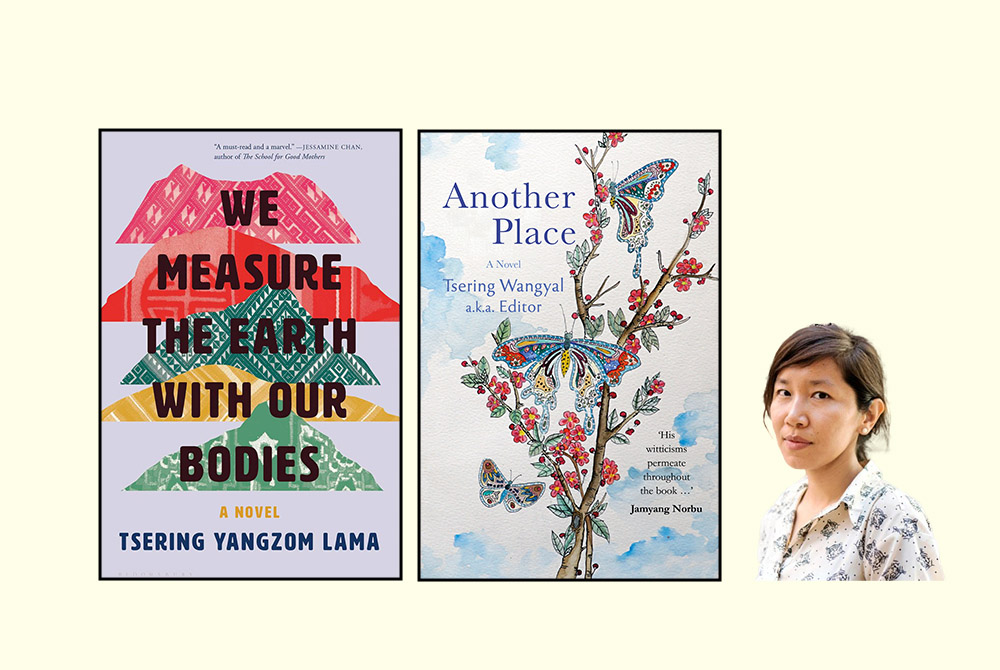
I was reading We Measure the Earth with Our Bodies from Tsering Lama, and Another Place from Tsering Wangyal.
We Measure the Earth is a wonderful, haunting novel that tells the Tibetan story in a way it’s never been told before. This book is a treasure and a gift! Another Place is a wonderful, flawed novel. I don’t think Dharamsala, the global Tibetan capital, has ever been captured so brilliantly in a book before.
***
Dechen Pemba
Editor, High Peak Pure Earth
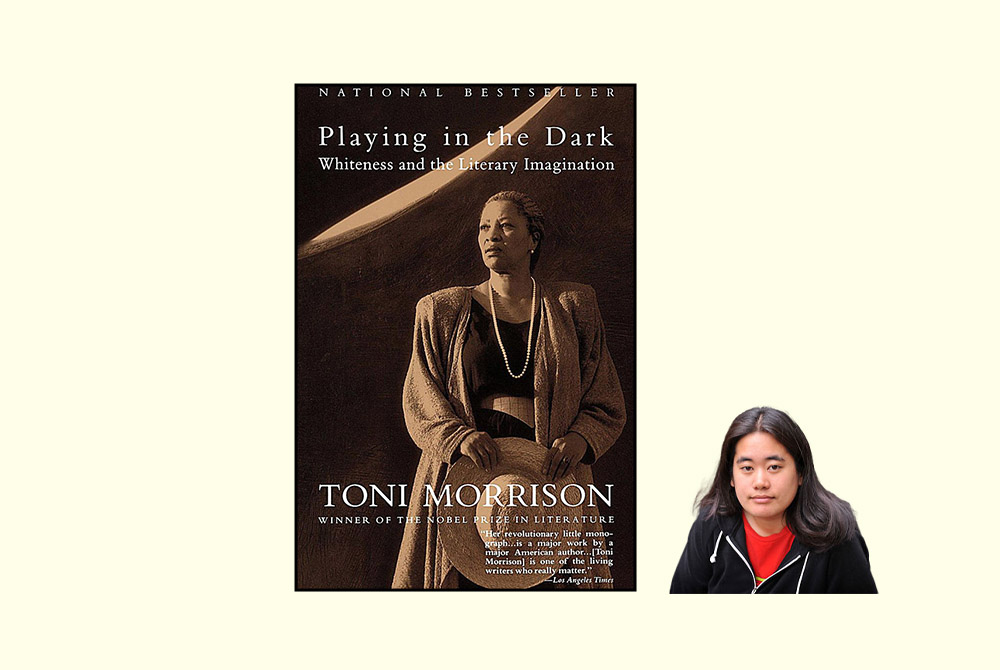
This Summer I am reading Playing in the Dark: Whiteness and the Literary Imagination by Toni Morrison.
I’ve always enjoyed reading Toni Morrison’s novels, but it was only recently after seeing a documentary about her – The Pieces I Am – that I learned that she had also written literary criticism. Playing in the Dark was published in 1992 and even though it’s 30 years old, it’s still so relevant today talking about race as metaphor. Tibet figures a lot in both Western and Chinese literature and imagination, so this book is helping me think about that.
***
Jigme Yeshe
Assistant Professor, Department of Political Science, University of Calcutta
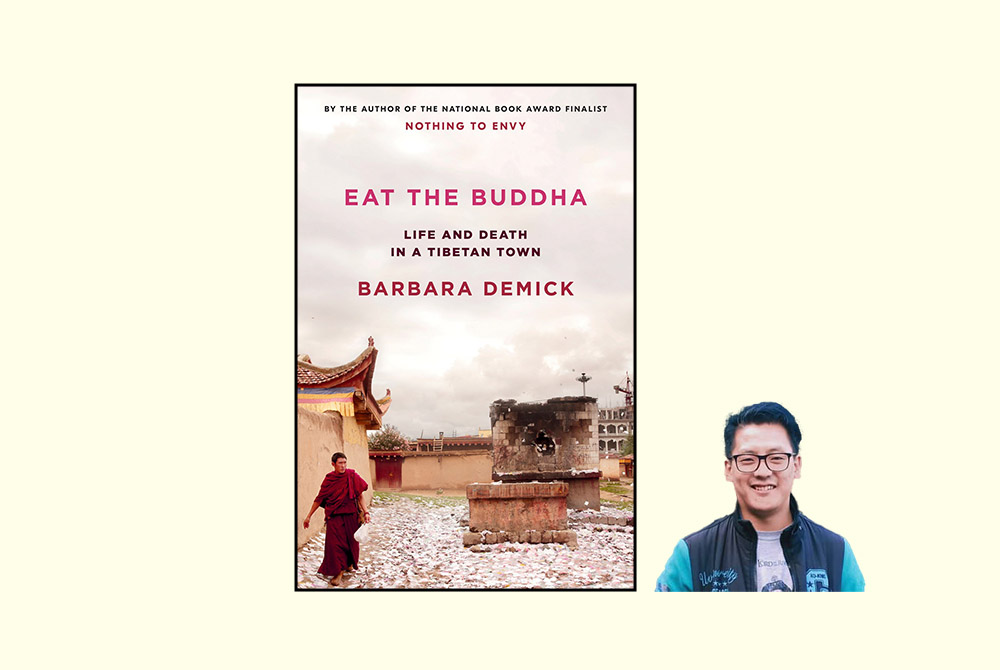
The book that I am currently reading is titled Eat the Buddha: Life and Death in a Tibetan Town by Barbara Demick.
The reason for reading this book is for understanding the grassroot causes for the self-immolations in Ngaba, Amdo, Tibet. It provides narratives from common people as well as the former ruling elites of the region, making it well balanced. More importantly, Eat the Buddha with its personal interviews and the wonderful research conducted by the author makes it a valuable source for anyone interested in understanding why Tibetans are resisting China’s rule.


